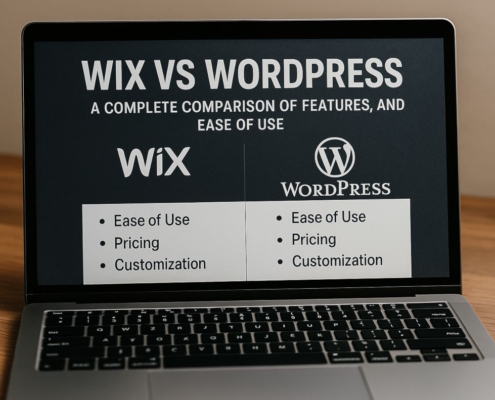Introduction
In short, the recruiters are asking you about your expectations of remuneration in order to ensure that it is within the range of what the business offers, test your personality, and also figure out your future plans.
People conducting the interview might want you to answer this question, and as such, when answering the question, do your homework, take into consideration cost, provide a range, show flexibility, and tell the truth. Anticipate a bargain. “While I wish to acquaint myself with what you are expecting, comparable occupations have wages between $65,000 and $75,000,” is one example of what you could say.
Are you aware of the value of your abilities in the current employment market? If you’re still unsure, read on to find out why you should.
Employers frequently ask a few very standard questions during the hiring process, for which you can and should definitely prepare. “What are your compensation expectations?” is the one that many individuals find the least pleasant.
They could also pose the identical question in the following ways:
- What salary criteria do you have?
- What will you expect to be paid?
And because it is a question that might determine the position of the two parties and whether the discussion will be successful or not, this is one of the most fragile sides of an interview. The best course of action is to prepare your response, decide the lowest you’ll accept, and conduct your study beforehand.
In this piece of writing, we
- Talk about the reasons behind recruiters’ questions about your expected salary.
- Demonstrate the most effective method for responding to the question.
- Give five excellent examples of responses to the interview question, “What are your compensation expectations?”
Why do hiring managers pose the question: “What are your compensation expectations?”
Companies inquire about pay expectations for a variety of reasons:
1. Ascertaining that you are in a comparable ballpark
The recruiter wants to confirm that your salary expectations are within their means before moving forward with the process. They will be able to end the interview process diplomatically and save everyone time and effort if you give them a hard number that is well outside of their range.
For this reason, a range is typically your best bet. Establish a maximum and minimum wage range that you are prepared to accept in order to open the door to negotiation and maintain the discussion.
2. To determine the kind of applicant you are
It’s essential that you offer a reasonable salary range. Offering them an approximate amount or a range of salaries that is typical for the region demonstrates your understanding of the labor market and gives them a clue as to what benefit you will add to the organization.
On one hand, asking too low can raise suspicions because it implies that you lack industry knowledge, are under-qualified, or lack confidence. Giving a top number that is too high, however, can come out as overconfident and overqualified.
3. To comprehend your long-term goals
This question may also be used by interviewers to determine your aspirations for the organization in both the short and long term. When you request a raise or promotion and other benefits, what you mention about what you want for the position you’re looking for now points to what you’ll expect later.
By learning about what you want at the interview stage, the interviewer can match your rates & plans with their long-term strategy for someone in your professional trajectory. In this situation, there is much more leeway, but remember that the hiring manager is asking this question with long-term goals in mind.
The most effective way to respond to the question, “What are your compensation expectations?”
Be ready to answer all the tough questions that interviewers always pose before going to the next job interview. In order to answer the question “What are your compensation expectations?” it is necessary to prepare a balanced response. You can use the following steps.
- Do some research on the location and position
Prior to the interview, study the firm and the job in the city of application. Even before you walk into your interview, you should ensure that you are not out of range of the current local salary range by using a tool like Glassdoor Salary Calculator to get an idea of the salary by location.
It’s wise to modify your response if the rate you desire is noticeably lower or higher than the norm there. You’ve got time to craft a convincing argument if you’re determined to demand a higher-than-average salary.
- Be aware of what you have to get
Taking into account all of your expenses is crucial when establishing your pay range. Asking for a low salary that won’t cover your credit payments, bills, and other expenses will only make things worse.
Ensure that the low salary is the minimum pay you can accept after computing how much you would require to be comfortable. This information can help you sound more reliable and assertive to the hiring officer in the interview process.
- Provide them with a range
Offering a pay range you’d be ready to accept instead of a fixed sum is the best and most straightforward way to respond to this issue. A range makes it easier for the hiring manager to compare you to other applicants and is far more likely to fall within the available funds for the position.
Compared to a fixed rate, a wage range gives the HR manager greater insight into your background and expertise. Additionally, it shows them that you are adaptable, which is fantastic.
- Stress your adaptability
When responding to this question, highlight your compensation flexibility to highlight your strongest soft talents. Giving the company some leeway during the interview will increase your interest and give them further reasons to think about you as a prospect.
Flexibility in regards to how much you would like to get paid shows that you are serious about the job and the business, and not only the pay. It also shows that you are certain of other things, like your responsibilities or duties.
- However, ask a bit higher than necessary
Remember that this is somewhat of a dance and song. It’s prudent and safe to choose the high end of your range, somewhat above the typical local compensation rate, if you are aware of it.
The higher sum will demonstrate to the recruiter your market knowledge, your belief in the worth of your job, and your ambition. Out of humility, asking for less than the going rate might give the interviewer the idea that you don’t know enough about the field or that you’re not sure you can perform the job as good as someone else.
- Be truthful
In answering this question, the interviewer will realize that you are truthful with regard to your intellectual capacity, and you are demanding a position that pays according to the same. You will have a greater likelihood of getting the project when you are not afraid or hesitate about asking for a fair salary.
- Recognize your merit
When answering the question: “What are your compensation expectations?” develop a reason behind your remuneration selection. Be ready to note your distinguishing qualifications, experiences, and achievements to prove why the proposal is rational.
The preparation and knowledge will earn you points when you are in a position to give an explanation for your answer. Also, it will persuade the recruiter to cooperate with you as it will show that you are reasonable.
- Be prepared to bargain
Negotiation may be an option, regardless of whether the salary you request falls either inside or outside of the range the business can give you. This can be nerve-racking and anxiety-inducing, so you’ll want to prepare yourself for it.
Fortunately, you have done your homework on the market, determined how much you actually need, and recognized your skills.
Example 1: Although I would like to know your precise requirements for this role before committing to anything, I am aware that similar roles to the one you are seeking to fill often pay between $65,000 & $75,000. I would also anticipate getting paid in that area given my background, abilities, and prior achievements in the field.
Example 2: My pay range is quite accommodating. Even though I want to be paid adequately for my background and solid performance history, I am aware that commissions as well as leads are important factors and that offerings in this sector are constantly fluctuating. Based on your commission structure, the generation of leads you do, and any other duties you may have here, I would ideally anticipate base pay to be between $30k & $50k. Based on my prior experience and what I’ve learned about the industry via my network, I am anticipating this range.
Example 3: Between $30,000 and $40,000 is my range. I think this is a fair range considering that I’m still learning the ropes and am relatively new to the field. According to the requirements you have, the amount of work, and the chances for growth and learning I would have here, I am, of course, amenable to talks. Does this fit into your spending plan?
Important learnings
- It is always preferable to request a range of salaries rather than a single sum.
- Investigate the typical pay for the position in the area where you’re applying first.
- Determine the lowest amount you could accept by adding up all of your fixed costs.
- On the way through the interview, remain as flexible as possible and be ready to negotiate on the specifics of the job.
- Write a list with the points of what you have done or achieved lately, and what justifies you having what you want.
- You should be willing to compromise.































